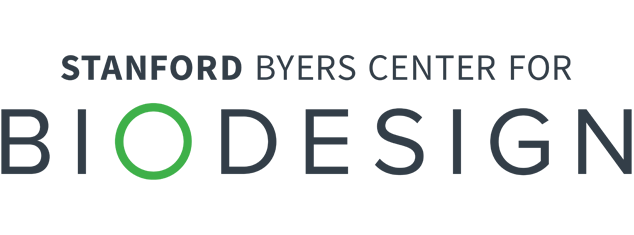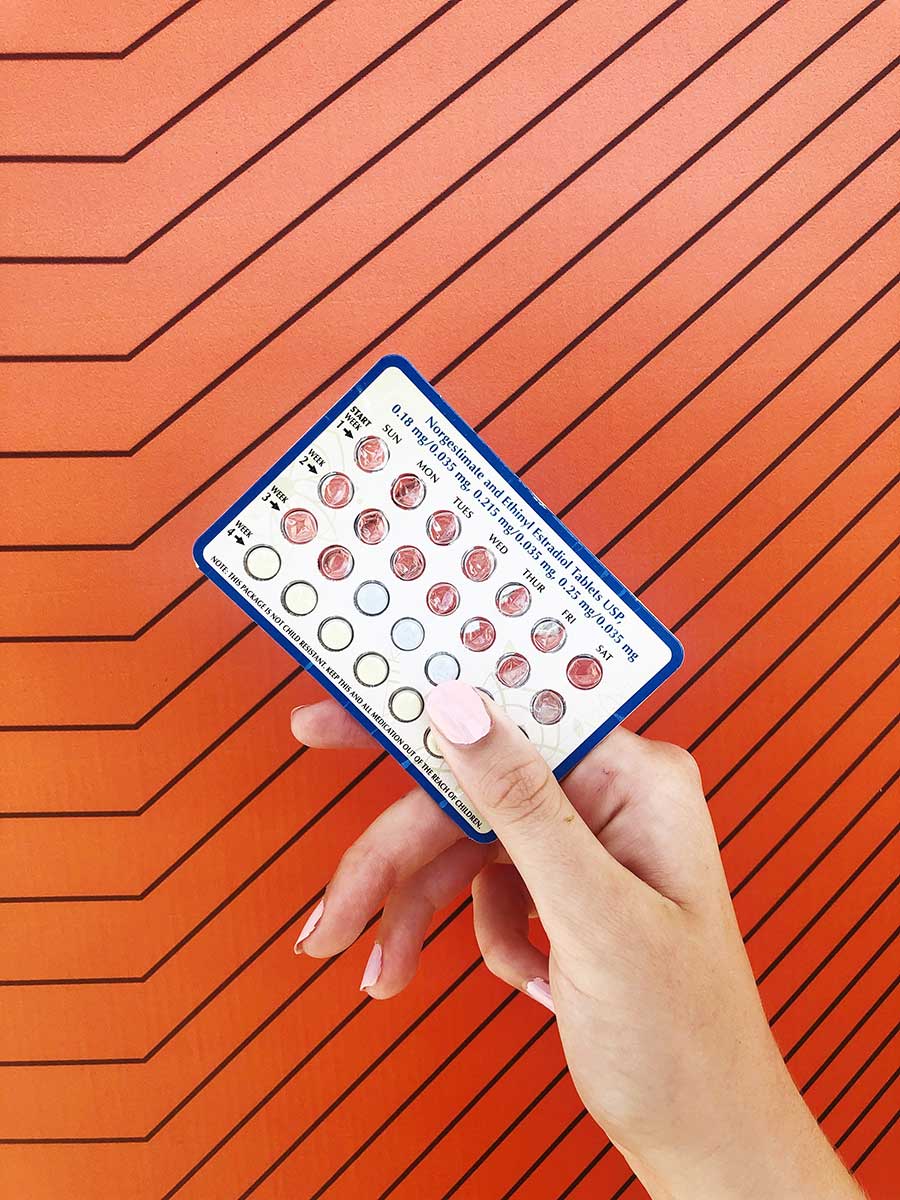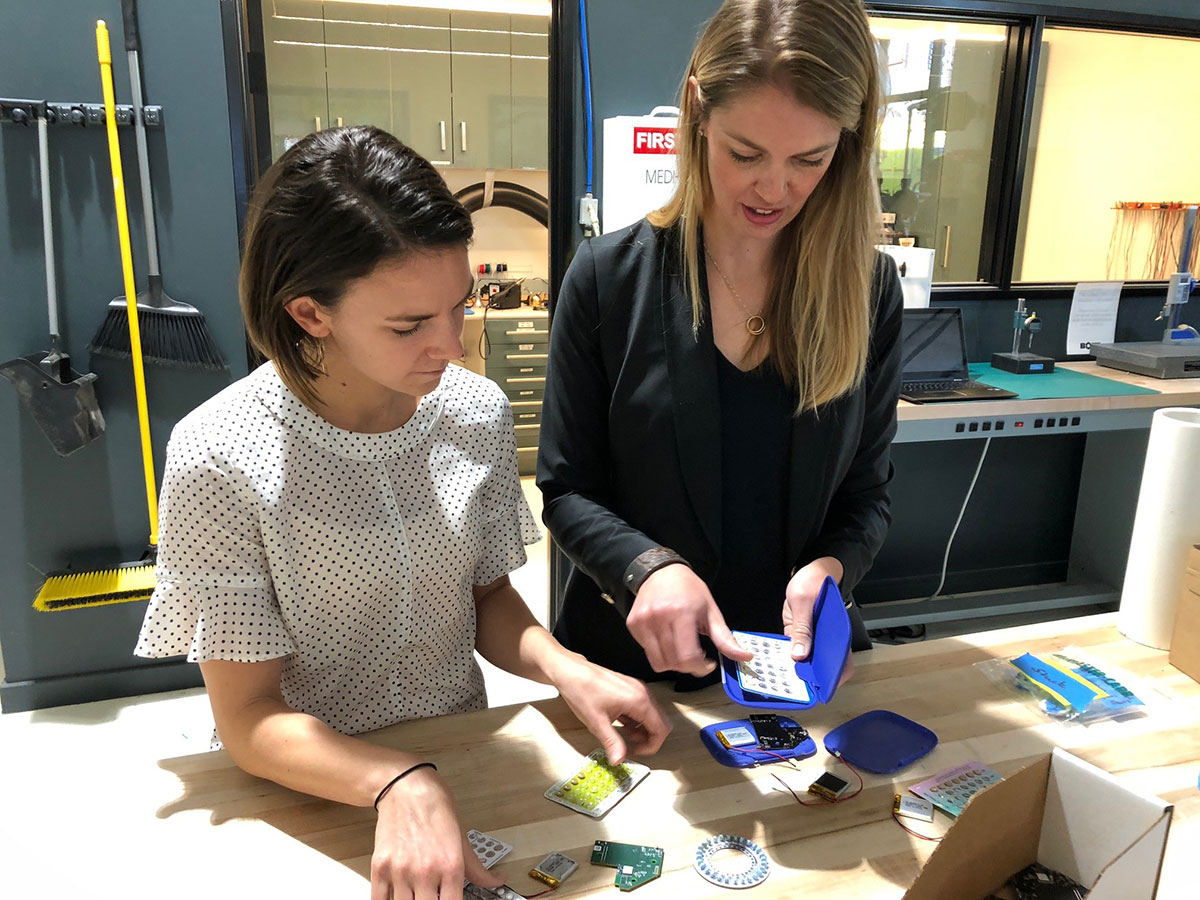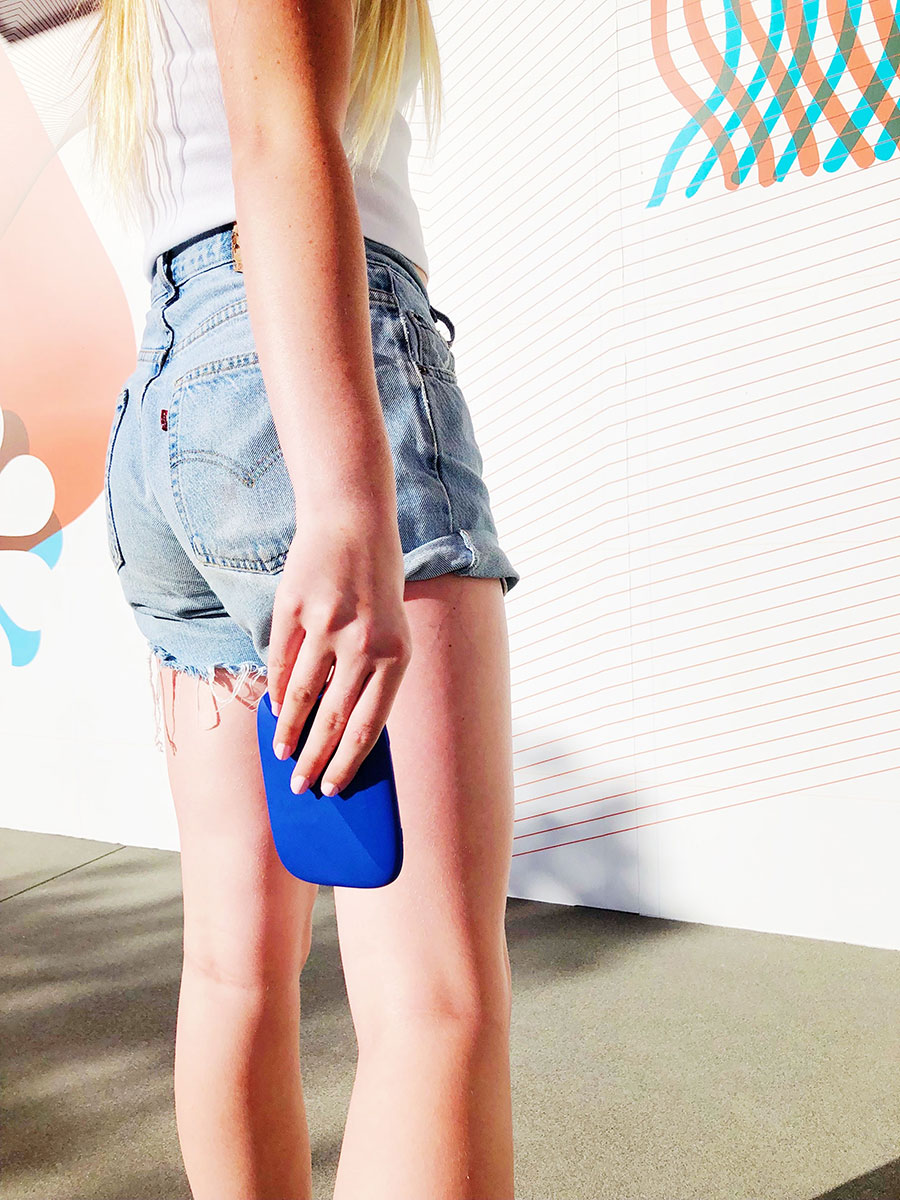Technologies
EMME Helping Women Manage Their Reproductive Health –
An Interview with Amanda French and Janene Fuerch, co-founders of EMME
What is the need that the two of you set out to address?
Janene: Amanda and I knew that we wanted to start a company in women’s reproductive health after the 2016 presidential election. We were extremely concerned about women losing access to important reproductive services, including birth control. For example, we anticipated the roll-back of Obama administration mandates that provide women with no- or low-cost IUDs. This change would cause more women to depend on birth control pills because they would be more cost effective in the short term. However, the pill is most effective when taken routinely – every day, at the same time – which can be a struggle for people. As a result, the way most women normally use it, it’s only 91% effective.
Amanda: We did some market research to get a high-level look the reproductive health space and women’s experiences with contraception. Initially, we were intrigued by some unmet needs related IUDs. But, as we started to review the survey data, think about our own experiences, and talk with friends, it became clear that everybody who takes birth control pills has the same problems. They can’t remember to take it reliably so they stop using it or risk an unplanned pregnancy. When we talked to physicians, they told us how much they liked the pill as an affordable and non-invasive form of birth control. However, they were also concerned about the failure rate. So we set out to solve this problem by helping women use the pill more consistently to maintain an improved hormone balance and prevent unplanned pregnancies.
What key insight was most important to guiding the design of your solution?
Amanda: Medication adherence is a massive and expensive healthcare challenge that has been difficult for companies to successfully solve. One of our key insights was to observe that the needs of women on the pill are completely different from other patient populations who struggle with medication adherence. Women on the pill are highly motivated to take the pill on time, and often cope with missed pills by taking pregnancy tests or plan B. Being late with even just one or two pills can trigger negative side effects and lead to an unplanned pregnancy. It’s not that women don’t care about taking the pill on time – it’s that our lives are so dynamic that it’s easy to forget every once in a while, which is why 80% of women on the pill miss at least one pill per month. We realized that we could use technology to create a trusted partner for women on the pill, and we knew that connected hardware would close the loop to offer major improvements in adherence.
“We realized that we could use technology to create a trusted partner for women on the pill….”
Janene: One other key insight had to do with the benefits of maintaining a better overall hormone balance. There were a few days when I’d be talking to my husband and he would ask me if I’d forgotten to take my birth control pill. While I’d be slightly offended by this, the point was that my behavior was different enough for him to tell that I’d missed a pill and my hormones were out of balance. So we took that insight and confirmed it with other women though larger surveys and focus group interviews. And we realized that this is something that many OB/GYNs don’t entirely understand. Women usually don't tell them, ‘I missed the pill and then I didn't feel quite right.’ They say things like, ‘I'm depressed.’ ‘I’m having breakthrough bleeding.’ ‘I'm feeling a little crazy.’ And the physician's response is often, ‘Let me give you a different pill.’ Or, ‘Let's take you off the pill entirely.’ And so our underlying hypothesis became that if we're able to help people take the pill more consistently, they’ll keep their hormones in balance, they’ll feel much better, and the pill will be a reliable form of birth control for them in the long term.
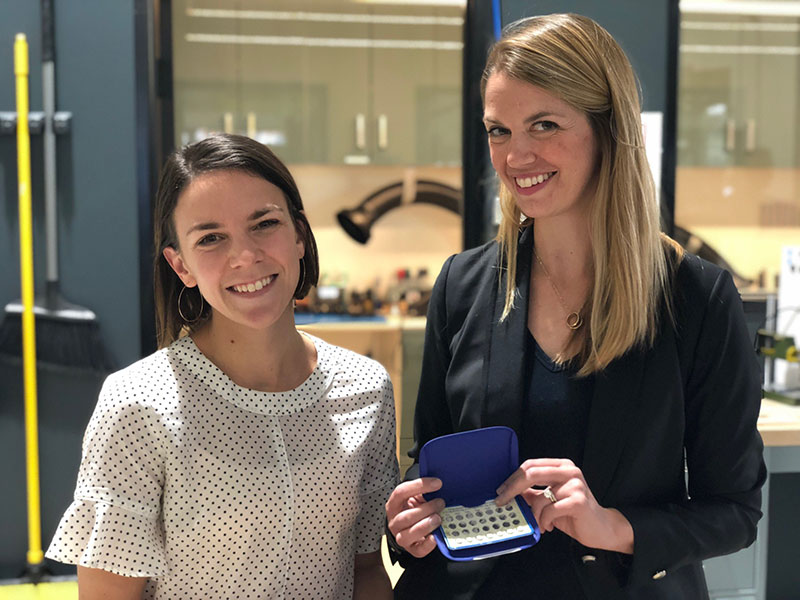 Co-founders Amanda French and Janene Fuerch.
Co-founders Amanda French and Janene Fuerch.
How does your solution work?
Amanda: Our product combines connected hardware with a personalized health tracking app to improve adherence and offer peace of mind to women on the pill. We’ve created a beautifully designed hardware case that works with any pill pack. It connects directly to our custom app and automatically records if and when a user takes the pill each day. This connected system enables the app to send reminders when pills are missed and provide personalized feedback on how to handle missed pills.
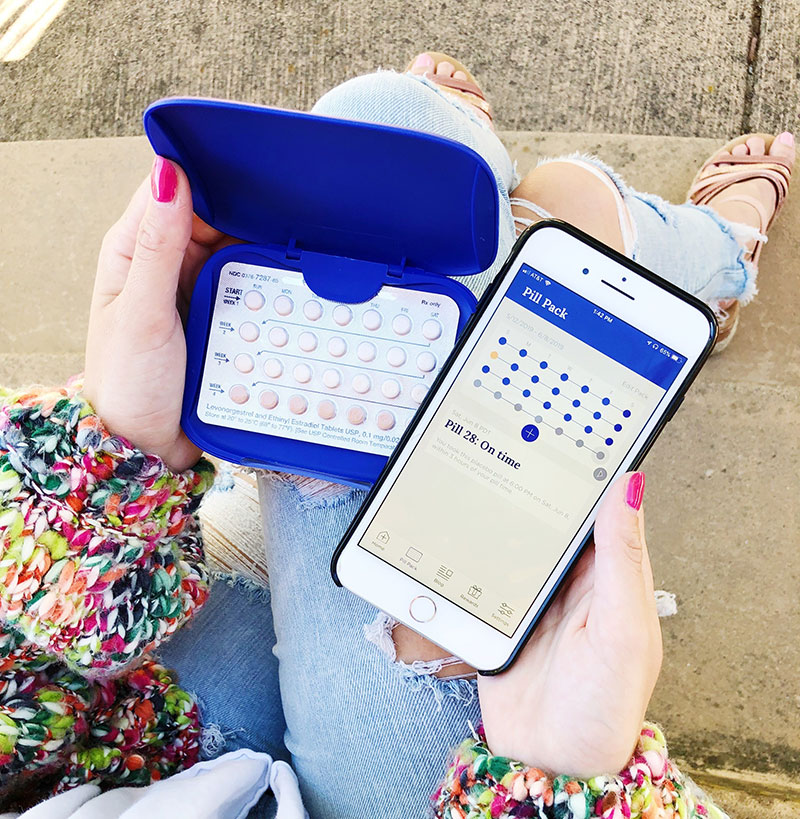 The EMME system.
The EMME system.
Our system is much better than just setting an alarm on your phone in a couple of ways. The reminders are customizable – push notification or text – and they come in the form of fun facts and motivational quotes. We take every detail into account. For example we automatically adjust the reminder times to account for time zone changes when you’re traveling. Most importantly, the reminders only come if a woman has missed her pill and when she’s able to do something about it. Research has shown that if you just remind people day after day, they start to ignore the reminders. But if you remind them when they can actually take appropriate action, then you can really influence behavior change.
Tell us about a major obstacle you encountered and how you overcame it.
Janene: Since our product has a major software component, we felt a certain pressure to hire software engineers to help us build out the app in order to be able to show people what we were thinking about, gather feedback, and do user testing. But, early on, we were working on a shoestring budget and really didn’t have the money for this. We ended up talking to Marta [Zanchi, who founded Stanford Biodesign’s Digital Health program] and she taught us how to storyboard. By drawing out the different screens on paper we could take women through the onboarding process, show them how they would interact with the app, and try out different user experience designs before having to pay engineers to develop any software. We learned so much by using this low-resolution approach.
At what stage of development is the solution?
Amanda: Over the past year we were focused on validating our product and iterating the technology through a sold-out, national beta. The results of the beta were phenomenal. We demonstrated that EMME has a significant and lasting impact on improving adherence, and that it delivers improved confidence and peace of mind. We are currently expanding our team and ramping up production in support of our full commercial launch, which will be later in 2020.
What are your plans for the future of EMME?
Amanda: The pill is often a woman’s first independent foray into the healthcare system, and it represents the beginning of a lifelong journey. We’re excited about the opportunity we have to build trust with women and girls from the earliest stages of their independent lives. And we’re committed to building products and services that enable us to grow with them. We have an exciting pipeline ahead –stay tuned!
“The whole Biodesign process has helped us stand out in an ever-crowding market in ways that we didn’t expect!”
How did your Biodesign training help you advance the project?
Janene: Stanford Biodesign helped us identify a need that really resonates with women and their partners. There are so many times that we’ve had women come up to us to say, ‘I know that this is a real need because I had two unplanned pregnancies.’ And we’re compelled to help these people. Also, when you find the right need and understand it deeply, a great solution will follow. The whole Biodesign process has helped us stand out in an ever-crowding market in ways that we didn’t expect!
What advice do you have for other innovators about health technology innovation?
Amanda: There is so much uncertainty and unchartered territory that comes with bringing a new product to market. But pretty quickly, as an innovator, you get to a place where nobody knows your product or company better than you do. Mentorship and advice are very valuable, but as a founder it’s important to learn how and when to trust your gut, and to really lean into that internal compass.
Amanda French and Janene Fuerch co-founded EMME out of the Biodesign Fellowship in 2017. To learn more, visit the EMME website.
Disclaimer of Endorsement: All references to specific products, companies, or services, including links to external sites, are for educational purposes only and do not constitute or imply an endorsement by the Byers Center for Biodesign or Stanford University.
